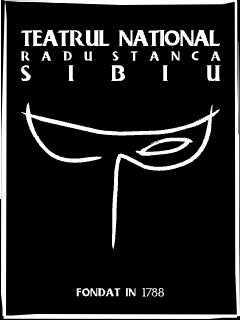A young man enters the home of a rich bourgeois. He is beauty itself. And his arrival is more a visit that is fulfilled by physical possession. The maid, Emilia, then the son of the family, Pietro, the mother, Lucia, the daughter, Odetta, and the father, Paolo, all get to know the guest in the biblical sense. But after his sudden departure, what will be left of the message he left? Will only the servant know salvation? For, unlike the bourgeois, according to Pasolini, she has not replaced her conscience with her soul, nor her morality with her sense of the sacred.
The director’s statement
“Theorem is about the stranger next door, a recurring theme in my projects, and this narrative has always been my main reference when analysing this aspect. After Fassbinder’s Katzelmacher and Arthur Miller’s View from the Bridge, texts that explore very deeply this theme of the other as a revealing factor of identity and intimate and political discovery, Theorem is my most authentic gesture today in my attempt to explore otherness regarding everything that goes outside the pattern, the norm, the conventional structures. With this text, and through the adaptation and contextualization of Yann Verburgh’s dramaturgy, I want to search for the repercussions of the stifled desire that awakens demons, but also identity revelations. As a fable of the new sexual revolution, I wish to conceive a performance about the dialogue between desire and assumption. The visitor, this object of impossible desire, becomes the engine that triggers the deepest and most visceral feelings, sensations and instincts. Based on Pier Paolo Pasolini’s novel, the dramaturgy and the directorial concept will revolve around the question: Who is the stranger in me, as a reflection of the mirror turned towards those who have alienated themselves. Are we in tune with who we are? Do we know ourselves? Do we have the freedom to take responsibility for our actions? These are some of the questions that we are asking the audience through this intimate and political manifesto.” - Eugen Jebeleanu, director.
“It's a howl that wants to announce,
in this uninhabited space, that I exist
or not only that I exist,
but know. It’s a howl
in which, in the depths of restlessness,
one senses humble accents of hope:
or a cry of certainty, absolutely absurd,
within which pure despair echoes.
Either way, one thing is certain: whatever
this scream of mine is meant to mean,
it is destined to last beyond any possible end."
(Pier Paolo Pasolini, Theorema, 1968)
About Eugen Jebeleanu
After completing his acting studies at UNATC – Bucharest and a Master’s degree in directing and dramaturgy in Paris, Eugen Jebeleanu has dedicated his work to directing theatre, opera and, more recently, film. In 2010, together with playwright Yann Verburgh, he founded “Compagnie 28” in 2010, and then “Cie des Ogres” in 2017, collaborating in recent years with the most important theatres in the country, including the theatres from Sibiu and Bucharest.
He has also signed the direction of numerous shows performed on stages in France and Germany. In 2017, he directed “Ogres”, a project that was awarded by the Fédération d'Associations de Théâtre Populaire (FATP). For the show “Itineraries. One day, the world will change” in 2019, he was awarded the prize for best direction at the UNITER Awards Gala. He collaborated with the National Opera of Lyon for “The Marriage of Figaro” by Wolfgang Amadeus Mozart.
In 2020, he made his debut as a film director with the feature “Field of Poppies”, awarded Best Director and Best Debut Film at the 2021 TIFF Festival and Best Debut Film at the 2022 GOPO Awards. In 2022 he is awarded the title of Chevalier des Arts et des Lettres by the French Ministry of Culture.
About Yann Verburgh
His plays have been published in France by Quartett Editions and Solitaires Intempestifs, translated and performed in several languages, read at the Comédie Française, broadcast on France Culture, awarded numerous prizes, grants and adapted for opera.
He responds to commissions for dramatic writing, notably for the National Drama Centers of Caen, Valence, Béthune and the Departmental Council of Seine-Saint-Denis, collaborates as playwright and librettist with the National Opera of Lyon and runs the “Cie des Ogres” with the director Eugen Jebeleanu – whom he accompanies as author or playwright in their creations.
In 2020, he completed a Master’s degree in screenwriting, continuing education at Fémis – École nationale supérieure des métiers de l'image et du son, and has since collaborated with Apaches Films as writer and director for his first short film “Riad” (selected and awarded in official competition in thirty film festivals in Europe and North America).
In recent years, he has collaborated as an author in France and Switzerland with Munstrum Théâtre and Lionel Lingelser, Richard Brunel, Frédéric Fisbach, Olivier Letellier, le Collectif sur un Malentendu, and his plays are programmed at the Théâtre de la Ville in Paris, the Théâtre du Rond Point, the Théâtre National de Bretagne, the Théâtre des Célestins in Lyon, the Comédie Genève, etc.






.jpeg?locale=en)
.jpeg?locale=en)
.jpeg?locale=en)
.jpeg?locale=en)
.jpeg?locale=en)
.jpeg?locale=en)

.jpeg?locale=en)
.jpeg?locale=en)


